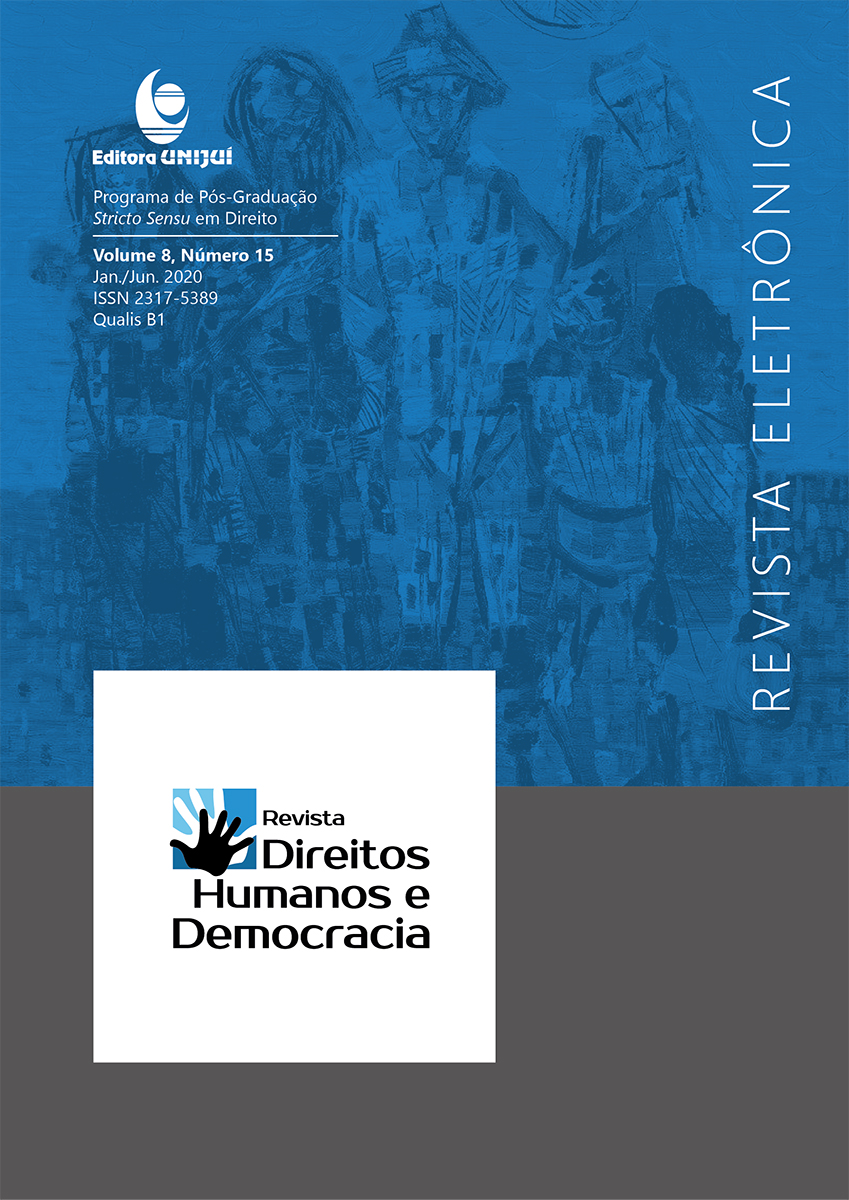ESTADO DEMOCRÁTICO DE DIREITO E A PARTICIPAÇÃO POPULAR NO BRASIL: UMA ANÁLISE A PARTIR DO CONCEITO DE LUIGI FERRAJOLI
DOI:
https://doi.org/10.21527/2317-5389.2020.15.255-271Resumo
O presente estudo tem como objetivo propor uma reflexão sobre o Estado Democrático de Direito e o exercício da democracia direta no Brasil à luz do garantismo como paradigma teórico. A análise dar-se-á com base nos aportes de Luigi Ferrajoli, segundo o qual as garantias constitucionais limitam e vinculam os poderes, com implicações de ordem jurídica e democrática, compreendendo desde a separação entre existência e validade nos aspectos formal e substancial até uma teoria quadridimensional da democracia fundada nos direitos políticos, civis, de liberdade e sociais. Sob esse olhar garantista, a participação popular realizada mediante a aproximação dos cidadãos dos centros de decisão está para além do exercício da democracia de forma direta assegurada no texto constitucional, deve ser considerada como importante instrumento nos processos de efetivação dos direitos fundamentais, especialmente dos direitos sociais constitucionalmente assegurados. Adota-se a metodologia qualitativa e a coleta dos dados por meio de pesquisa bibliográfica.
Downloads
Publicado
Como Citar
Edição
Seção
Licença
Ao publicar na Revista Direitos Humanos e Democracia, os autores concordam com os seguintes termos:
Os trabalhos seguem a licença Creative Commons Atribuição 4.0 Internacional (CC BY 4.0), que permite:
Compartilhar — copiar e redistribuir o material em qualquer meio ou formato;
Adaptar — remixar, transformar e criar a partir do material para qualquer fim, inclusive comercial.
Essas permissões são irrevogáveis, desde que respeitados os seguintes termos:
Atribuição — os autores devem ser devidamente creditados, com link para a licença e indicação de eventuais alterações realizadas.
Sem restrições adicionais — não podem ser aplicadas condições legais ou tecnológicas que restrinjam o uso permitido pela licença.
Avisos:
A licença não se aplica a elementos em domínio público ou cobertos por exceções legais.
A licença não garante todos os direitos necessários para usos específicos (ex.: direitos de imagem, privacidade ou morais).
A revista não se responsabiliza pelas opiniões expressas nos artigos, que são de exclusiva responsabilidade dos autores. O Editor, com o apoio do Comitê Editorial, reserva-se o direito de sugerir ou solicitar modificações quando necessário.
Somente serão aceitos artigos científicos originais, com resultados de pesquisas de interesse que não tenham sido publicados nem submetidos simultaneamente a outro periódico com o mesmo objetivo.
A menção a marcas comerciais ou produtos específicos destina-se apenas à identificação, sem qualquer vínculo promocional por parte dos autores ou da revista.
Contrato de Licença: Os autores mantém os direitos autorais sobre seu artigo, e concedem a Revista Direitos Humanos e Democracia o direito de primeira publicação.













